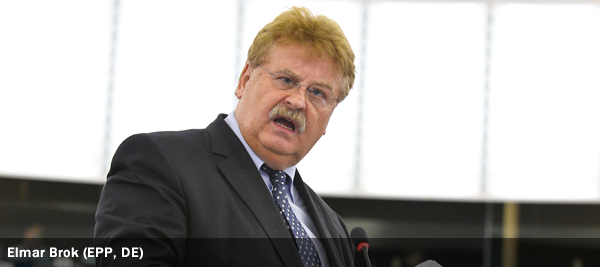It can’t be business as usual for Ashton’s successor, MEPs insisted, Thursday. Deputies called for a new approach to EU foreign policy based on leadership and the defence of the EU’s interests and values. Above all, they insist, the EU must be proactive, set priorities and make full use of EU and member states’ resources and the opportunities provided by the Lisbon Treaty.
The EU has not yet developed a clear strategy for its relations with the rest of the world and its activities are more reactive than proactive, regret MEPs in the resolution they adopted by 389 votes to 114, with 58 abstentions they call for a fundamental strategic debate, which should include the Council, the Commission and the Parliament.
Europe should be “a global player instead of a global payer,” the rapporteur and chair of the Foreign Affairs Committee, Elmar Brok (EPP, DE), said during the debate. “Where Europe speaks with one voice, the world listens,” he added, referring to talks with Iran and Kosovo. 70% of EU citizens demand a collective EU foreign policy, he said, adding “there is no other issue where citizens want to move ahead more than on this”.
To overcome the inappropriate use of the veto within the Council, special tasks and missions could be assigned to coalitions of the willing, or core groups of EU member states, MEPs say. They also want decision-making under the Common Security and Defence Policy (CSDP) to be speeded up.
The European Council meeting in December on the future of European defence is an opportunity to review the EU’s strategic goals and concepts, MEPs say. Heads of state and government should deliver a clear roadmap with timelines for achieving key goals, including the use of a ‘white book’ as a common template for concurrent national security and defence reviews.
The resolution says the Common Foreign Security Policy (CFSP) can only succeed by drawing upon all areas of foreign policy, including deeper cooperation on European defence. EU foreign policy must also be given adequate resources, they stress, questioning the Council’s rationale for cuts to foreign policy spending in the EU’s 2014-2020 budget.
